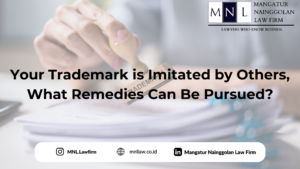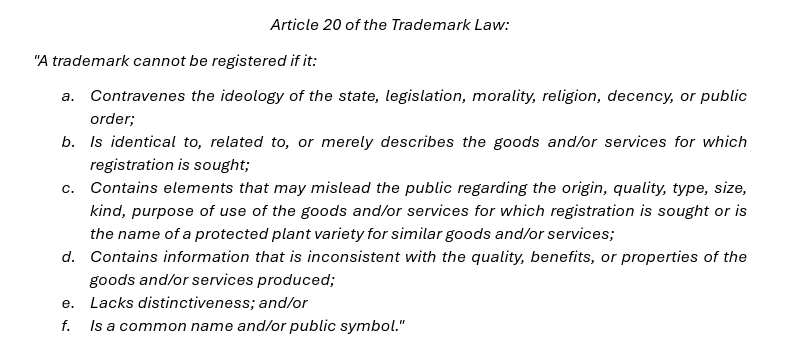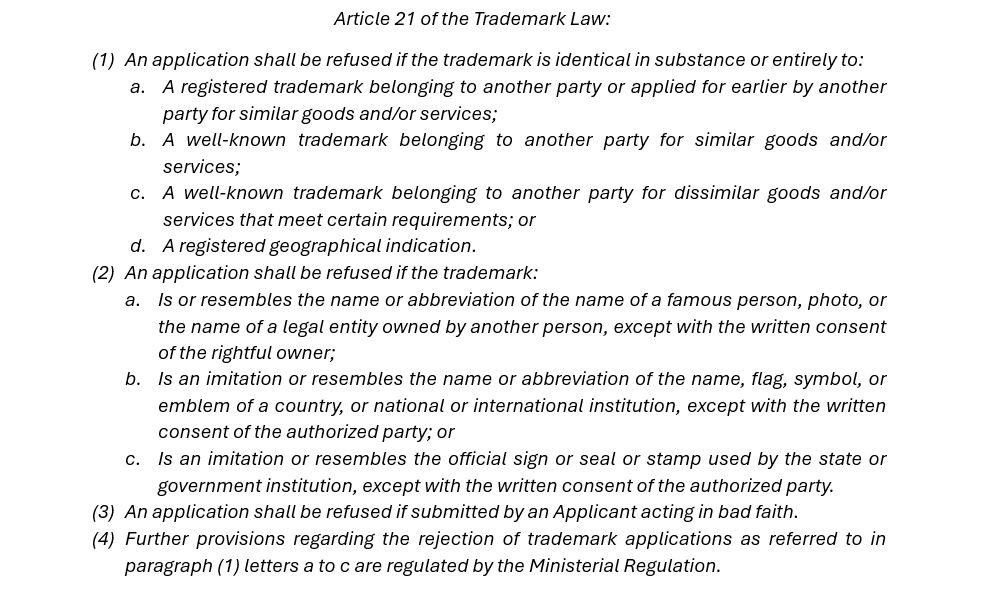
The definition of a trademark is stipulated in Article 1 paragraph 1 of Law Number 20 of 2016 concerning Trademarks (“Trademark Law”) which states that a Trademark is a sign that can be presented graphically in the form of an image, logo, name, word, letter, number, color arrangement, in 2 (two) or 3 (three) dimensions, sound, hologram, or a combination of 2 (two) or more of these elements to distinguish goods and/or services produced by individuals or legal entities in the trade of goods and/or services. Furthermore, trademarks are very important in a business as they serve as a differentiator for goods or services produced or sold.
Essentially, to obtain protection for a trademark, an application for trademark registration must be submitted to the Minister of Law and Human Rights, including:
- Date, month, and year of the application;
- Full name, nationality, and address of the applicant;
- Full name and address of the Attorney if the application is submitted through an Attorney;
- Color if the trademark applied for registration uses a color element;
- Name of the country and date of the first trademark request in the event that the application is submitted with priority rights; and
- Class of goods and/or class of services as well as a description of the types of goods and/or services.
This application is accompanied by a Trademark label and proof of payment of fees as well as a statement of ownership of the Trademark applied for registration.
The trademark that has been issued a Trademark Certificate by the Minister of Law and Human Rights is legally registered. In addition, under Intellectual Property Law, Indonesia follows the First to File principle. This means that the trademark owner holds rights to the trademark, namely exclusive rights granted by the state to the first (initial) registered owner for a certain period, to use the trademark themselves or grant permission to others to use it
Often, the more famous a trademark becomes, the more potential it has to be imitated, counterfeited, or used by others without the permission of the legitimate owner. So what legal actions can the owner of the registered trademark take to protect and maintain their rights over their trademark?
LITIGATION
A. CIVIL LAW
Filing a lawsuit against the party that imitates/pirates/uses the registered trademark with the Commercial Court, which can be in the form of a claim for damages or a claim for cessation of all acts related to the use of the trademark, as stipulated in Article 83 of the Trademark Law;
Moreover, if there is another party’s trademark that is identical in whole or in substance to your registered trademark, you may file a Trademark Cancellation Lawsuit within a period of 5 years from the date of trademark registration to the Commercial Court based on Article 76 of the Trademark Law, which states:
- A registered trademark cancellation lawsuit may be filed by an interested party based on the reasons as referred to in Article 20 and/or Article 21.
- The owner of an unregistered trademark may file a lawsuit as referred to in paragraph (1) after submitting an Application to the Minister.
- The cancellation lawsuit is filed with the Commercial Court against the owner of the registered trademark.


B. CRIMINAL LAW
In addition to civil legal remedies, you can pursue criminal legal remedies by filing a report to the local police regarding the use of the trademark, whether identical to your registered trademark or substantially similar to your registered trademark for similar goods and/or services produced and/or traded, as stipulated in Article 100 of the Trademark Law.
ALTERNATIVE DISPUTE RESOLUTION
Apart from pursuing civil or criminal routes, trademark owners whose trademarks are infringed upon can utilize alternative dispute resolution methods, as regulated in Article 93 of the Trademark Law. Referring to the explanation in Article 93 of the Trademark Law, alternative dispute resolution can be pursued through, among others, negotiation, mediation, conciliation, and other methods chosen by the parties to find a win-win solution for both sides.
If you require Legal Consultation, you can contact us through:
Email: Secretary@mnllaw.co.id
Phone: 0812 9539 7825 / 0813 98941976
